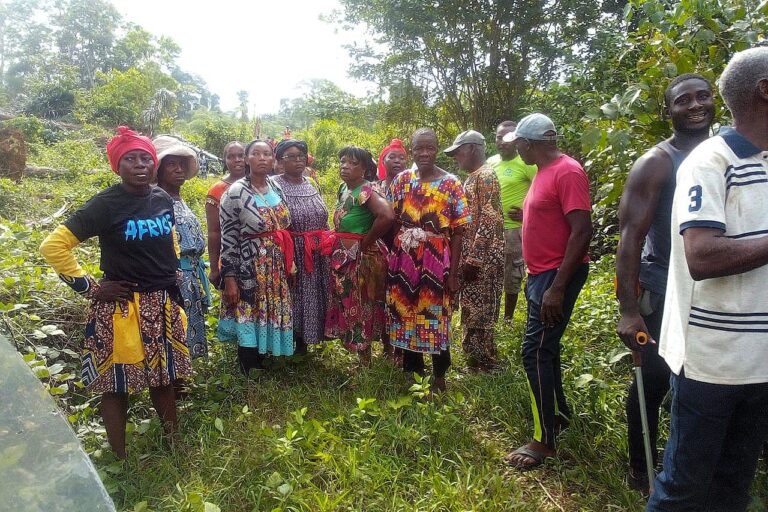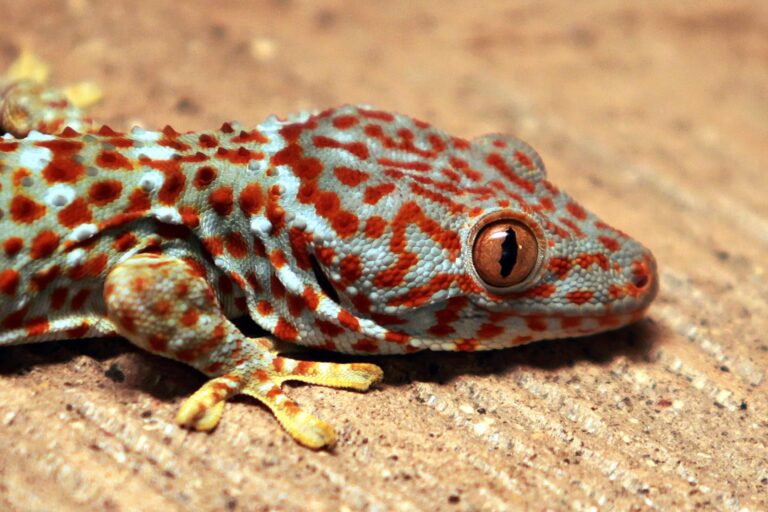- Cameroonian villagers protesting on March 25 against plantation company Socapalm’s replanting of oil palm trees on disputed land were dispersed with tear gas by local law enforcement.
- Villagers say the land is part of 3,712 hectares (9,173 acres) that Socapalm was supposed to return under a 2000 lease, but the company denies this.
- Armed security escorted Socapalm workers despite a local official’s previous statement that replanting required an agreement with villagers.
- Socfin, Socapalm’s parent company, has been accused of land grabbing and human rights abuses, with a 2023 report confirming community grievances at its Cameroon plantations.
Villagers in Cameroon have denounced the use of tear gas by authorities to break up their protest on March 25 against the replanting of oil palm trees by the plantation company Socapalm on disputed land in the country’s southwest. Residents of the village of Apouh à Ngog say the land should have been returned to them, and that 6,000 young banana trees they had planted to assert their claim have now been uprooted.
Félicité Ngo Bissou, president of the Association of Women Residents of Socapalm- Édéa (known by its French acronym, AFRISE), accused Socapalm’s Luxembourg-based owner, Socfin, of “using a strategy of intimidation and beatings to prevent us from accessing our lands.”
“That’s why they came armed to the teeth, uprooted all the bananas, and are planting oil palm trees everywhere,” she told Mongabay by telephone on Apr. 3.


Apouh à Ngog is is one of several villages at the center of a long-standing land conflict between residents of the Édéa commune and Socapalm. Villagers say that since the plantation was established in 1969, the company’s activities have steadily encroached upon their ancestral lands, leaving them with little space for farming, housing, or burials. In the case of Apouh, villagers say Socapalm has occupied almost all of their land.
Ngo Bissou told Mongabay that the piece of land where Socapalm has planted new oil palms is part of 3,712 hectares (9,173 acres) that the company is contractually bound to return to the villagers under a clause in the 2000 lease agreement.
In 2023, Socapalm started removing aging palm trees from this area, and in January 2025, Ngo Bissou and a group of women led by AFRISE planted banana seedlings there.
In an interview recorded by a local journalist, Apouh resident Janvier Etamane said Édéa’s subprefect, Hector Fame, the district’s highest-ranking official, had instructed that Socapalm and local residents must reach an agreement before the company could begin replanting. “Suddenly, we saw countless armed soldiers wearing bulletproof vests surrounding the Socapalm workers as they replanted — that’s when we, the villagers, rose up,” Etamane said.

Footage from Socapalm’s operation filmed by Ngo Bissou shows the use of tear gas by the national gendarmerie to disperse protesters.
“The gendarmes on March 25th 2025 were present to prevent trespassing and allow our teams to proceed with replanting the area (this is not an extension),” Socfin spokesperson Ludovic Saint-Pol wrote in response to questions from Mongabay. The replanting went as planned, he said, “with no notable incident,” and the only Socfin security personnel at the scene were members of a village watch committee (local youth recruited by the company to secure the plantation against trespassers), who he stressed are not armed.
Saint-Pol also denied that company workers had pulled up the villagers’ young banana plants. “They were not uprooted. However, we simply continued our replanting work in the designated area, where plots had been cleared in 2024 but had not yet been replanted. At the start of the work, these young plants were no longer visible, as they had been completely covered by the ground cover plant used as part of our program.”
Earlier this year, Socfin told Mongabay that the company is no longer occupying any contested land and the responsibility of returning retroceded land lies with the government. Saint-Pol stated the company’s view that the piece of land at Édéa that was replanted at at the end of March is not part of the land to be returned; it was only acquired by Socapalm in a merger in 2010, and no dispute was raised over it until 2023.

Reached by phone, Édéa subprefect Fame told Mongabay: “If you want to know who mobilized the police, contact Socapalm. I wasn’t the one who mobilized the law enforcement officers.”
In the aftermath of the protest over the replanting, AFRISE and 50 other local and international organizations wrote an open letter to the senior official in the Sanaga Maritime region, where the plantation is located, demanding that the authorities halt Socapalm’s activity and investigate the incident.
Socfin has been accused of land grabbing, human rights abuses, and sexual violence in many of the countries where it operates. The company commissioned sustainability consultancy the Earthworm Foundation to investigate community grievances in Cameroon, Nigeria, Sierra Leone, Liberia and Cambodia in 2023. The consultancy has confirmed many of the allegations.
Its report on Socapalm, published in February, substantiated allegations of land grabbing and sexual harassment at the Édéa plantation. Earthworm noted that despite acknowledging its obligations in 2020, Socapalm has not returned land to the Édéa communities as promised.
Ngo Bissou said villagers have remained at the disputed site while the company continues its replanting exercise accompanied by gendarmes.
Banner image: Villagers protesting the re-planting of oil palms on Socapalm’s plantation at Édéa. Image courtesy Félicité Ngo Bissou/AFRISE.
New allegations of abuse against oil palm giant Socfin in Cameroon
Palm oil giant hands over sacred community land for reforestation project
Investigation confirms more abuses on Cameroon, Sierra Leone Socfin plantations
Feedback: Use this form to send a message to the author of this post. If you want to post a public comment, you can do that at the bottom of the page.














